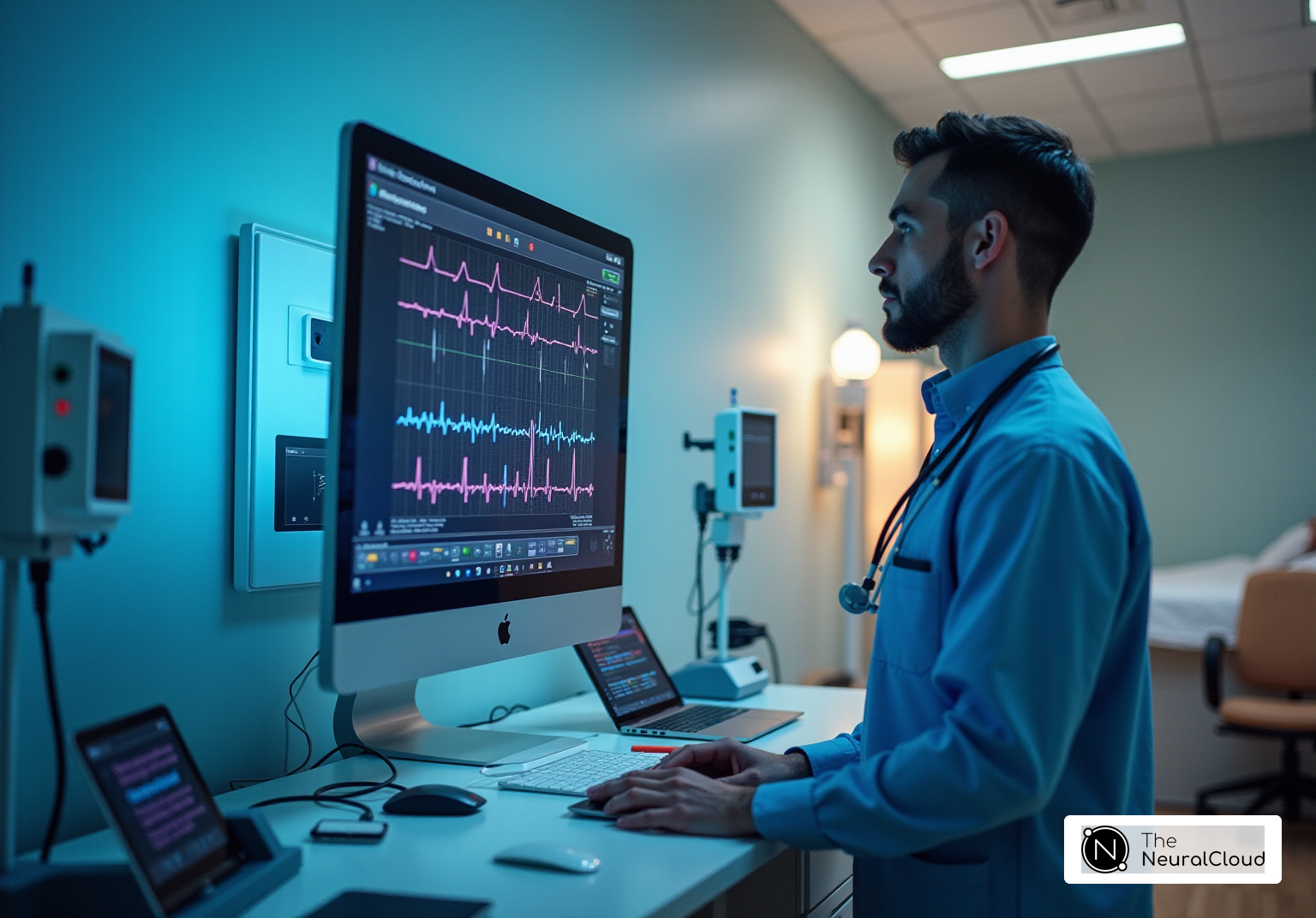Introduction
In the fast-evolving landscape of healthcare, effective leadership is crucial for navigating complex challenges and improving patient outcomes. This article explores seven key insights into how Motivational Interviewing (MI) techniques and advanced technologies, such as Neural Cloud Solutions' MaxYield™, can transform healthcare leadership. Readers will discover the benefits of integrating emotional intelligence, tailored training programs, and feedback mechanisms to foster collaboration and resilience within teams.
As the healthcare sector faces unprecedented pressures, leaders must consider how to effectively harness these insights to drive meaningful change and enhance care delivery. By understanding the challenges in ECG analysis, healthcare professionals can better appreciate the features of the MaxYield™ platform. This innovative solution enhances ECG analysis through advanced algorithms and real-time data processing, ultimately improving diagnostic accuracy and patient care.
The advantages of implementing MaxYield™ are significant. Healthcare professionals benefit from streamlined workflows, reduced analysis time, and improved patient outcomes. By leveraging these insights, leaders can cultivate a more effective and responsive healthcare environment, ensuring that teams are equipped to meet the demands of modern healthcare.
Neural Cloud Solutions: MaxYield™ for Automated ECG Analysis
Neural Cloud Solutions' MaxYield™ platform addresses significant challenges in ECG analysis by automating cardiac signal interpretation. This innovative technology employs gold standard methodologies and advanced noise filtering to process over 200,000 heartbeats in under five minutes. As a result, healthcare professionals receive rapid and precise insights, allowing them to focus on critical decision-making rather than time-consuming manual data processing.
The features of MaxYield™ include sophisticated AI algorithms and a Continuous Learning Model that enhance the clarity of ECG signals. This capability is crucial, as studies have shown that AI algorithms can achieve a positive predictive value and sensitivity of 0.837, outperforming average cardiologist assessments. Furthermore, the platform's ability to accurately identify electrocardiographic abnormalities has been validated across diverse datasets, demonstrating its reliability in clinical settings.
The advantages of using MaxYield™ are evident in various case studies that highlight its effectiveness in improving diagnostic accuracy. For example, an AI algorithm applied to twelve-lead ECGs showed significantly higher sensitivity compared to traditional methods, achieving 159.9% greater accuracy than standard computer ECG diagnoses. This not only streamlines workflows but also enhances the overall quality of care provided to patients.
Healthcare professionals increasingly recognize the value of AI in ECG analysis. Experts emphasize that AI can assist in detecting arrhythmias and other ECG abnormalities, ultimately alleviating the burden on clinicians and improving patient outcomes. As AI technology continues to advance, its integration into ECG analysis is expected to further enhance diagnostic accuracy and operational effectiveness in medical environments.
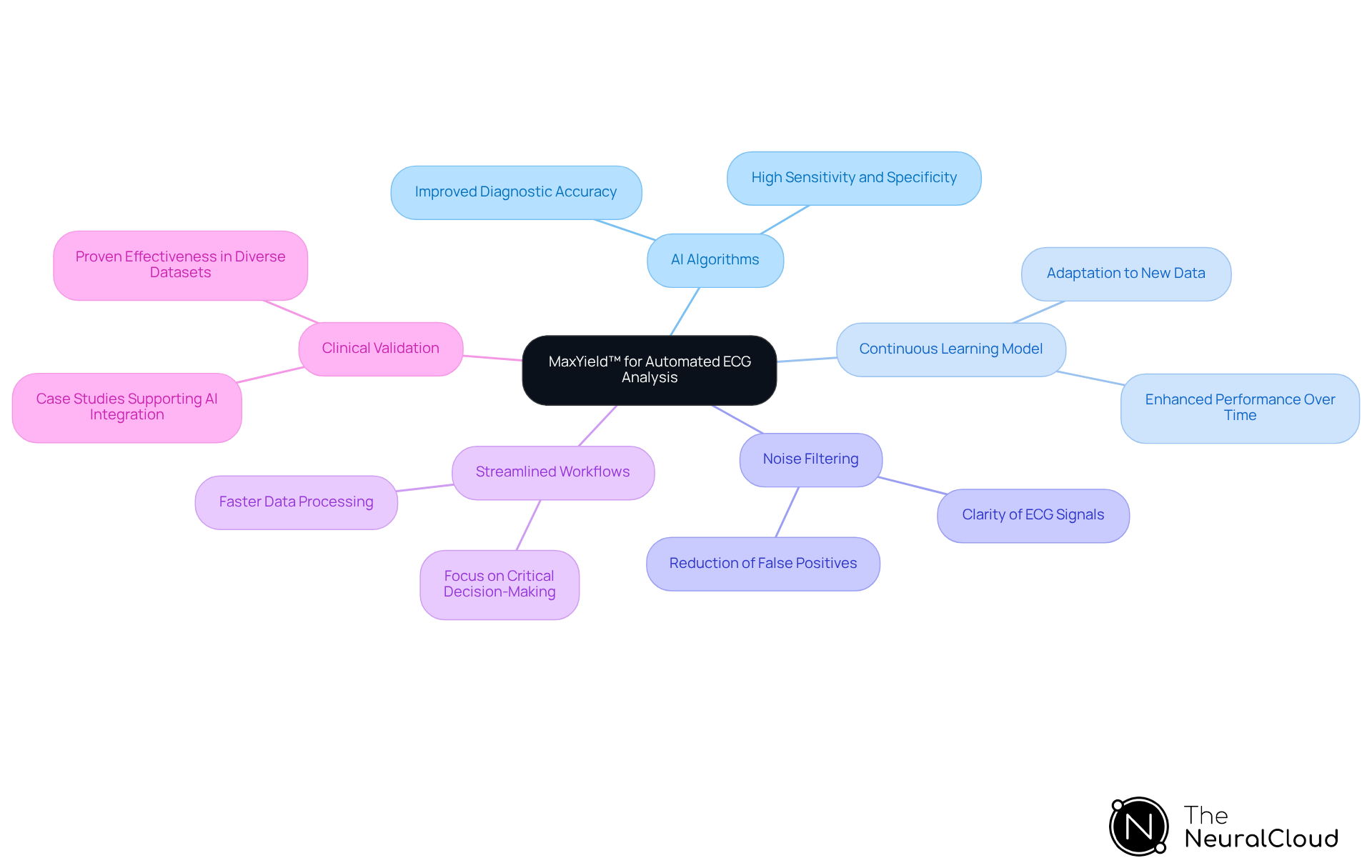
Motivational Interviewing: Enhancing Leadership Communication in Healthcare
Motivational interviewing (MI) serves as a powerful communication approach that enhances engagement and motivation within medical groups. By applying MI techniques, leaders can create open dialogues, enabling team members to voice their concerns and aspirations. This method not only fortifies interpersonal relationships but also promotes a culture of collaborative decision-making, which is vital in medical environments where teamwork is essential.
Research indicates that MI can lead to improved group dynamics. Leaders trained in MI techniques are better equipped to navigate complex discussions, ultimately fostering greater group cohesion and enhancing patient care outcomes. For instance, a study found that medical professionals employing MI reported increased confidence in their communication skills, which in turn elevated job satisfaction and group engagement.
Moreover, the effective implementation of MI techniques has been linked to higher participation in treatment planning. This alignment of team efforts with patient-centered goals significantly enhances overall service delivery. However, it is crucial to recognize that MI may not be appropriate for everyone, particularly individuals dealing with trauma or depression, which requires careful consideration prior to its application.
Additionally, follow-up after MI sessions is essential for monitoring changes and evaluating effectiveness. This step ensures that the benefits of MI are fully realized, contributing to sustained improvements in both team dynamics and patient outcomes.
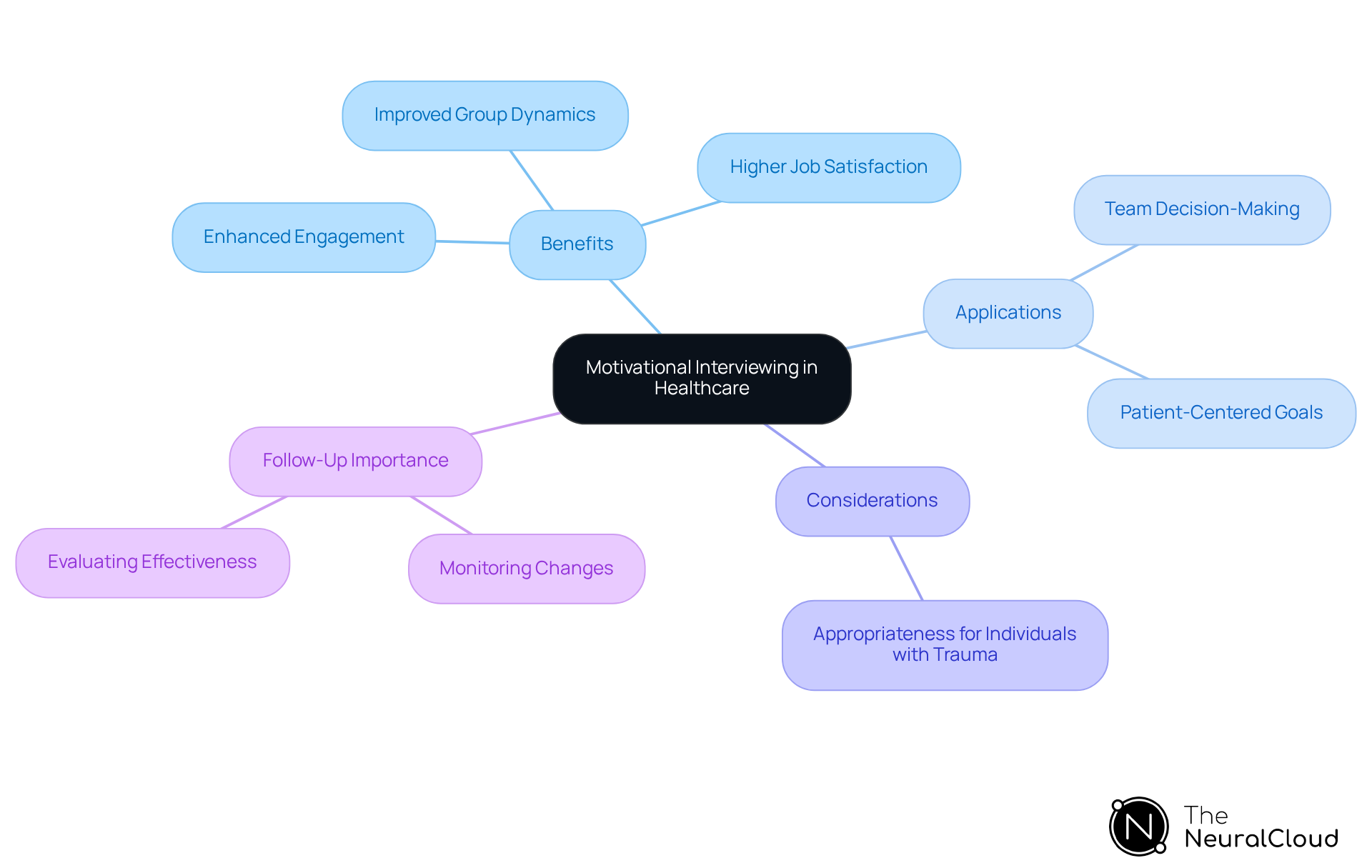
Leadership Training Programs: Tailored Solutions for Healthcare Challenges
Effective leadership training programs are carefully crafted to tackle the unique challenges that medical professionals encounter. These initiatives typically encompass modules on strategic decision-making, crisis management, and technology integration, ensuring that participants are equipped to navigate the complexities of service delivery. By showcasing real-world scenarios, these programs foster the development of essential skills that enable individuals to adeptly maneuver through intricate medical environments.
Tailored solutions not only broaden leaders' knowledge but also empower them to execute strategies that align with their organization's goals and address patient needs. For instance, the Executive Leadership in Academic Medicine (ELAM) program, which has been operational for over 20 years, has proven effective in cultivating leadership skills among women in health sciences, responding to the demand for diverse leadership in the medical sector.
Moreover, research reveals that 90% of physicians and 89% of nurses regard burnout as a significant concern, highlighting the critical need for effective leadership training. Leadership development significantly enhances perceived capabilities, establishing a connection between improved leadership skills and reduced burnout rates among medical professionals. This underscores the vital role of customized training in fostering effective medical leadership.

Feedback Mechanisms: Building a Culture of Continuous Improvement in Healthcare Leadership
Implementing robust feedback mechanisms is essential for healthcare executives who want to foster a culture of continuous improvement. Consistent feedback from team members helps identify areas for enhancement and sparks creativity. By creating an environment where feedback is valued and acted upon, leaders can encourage open communication and collaboration. This approach not only boosts morale but also leads to better outcomes as mi leads collaborate to refine practices and proactively address challenges.
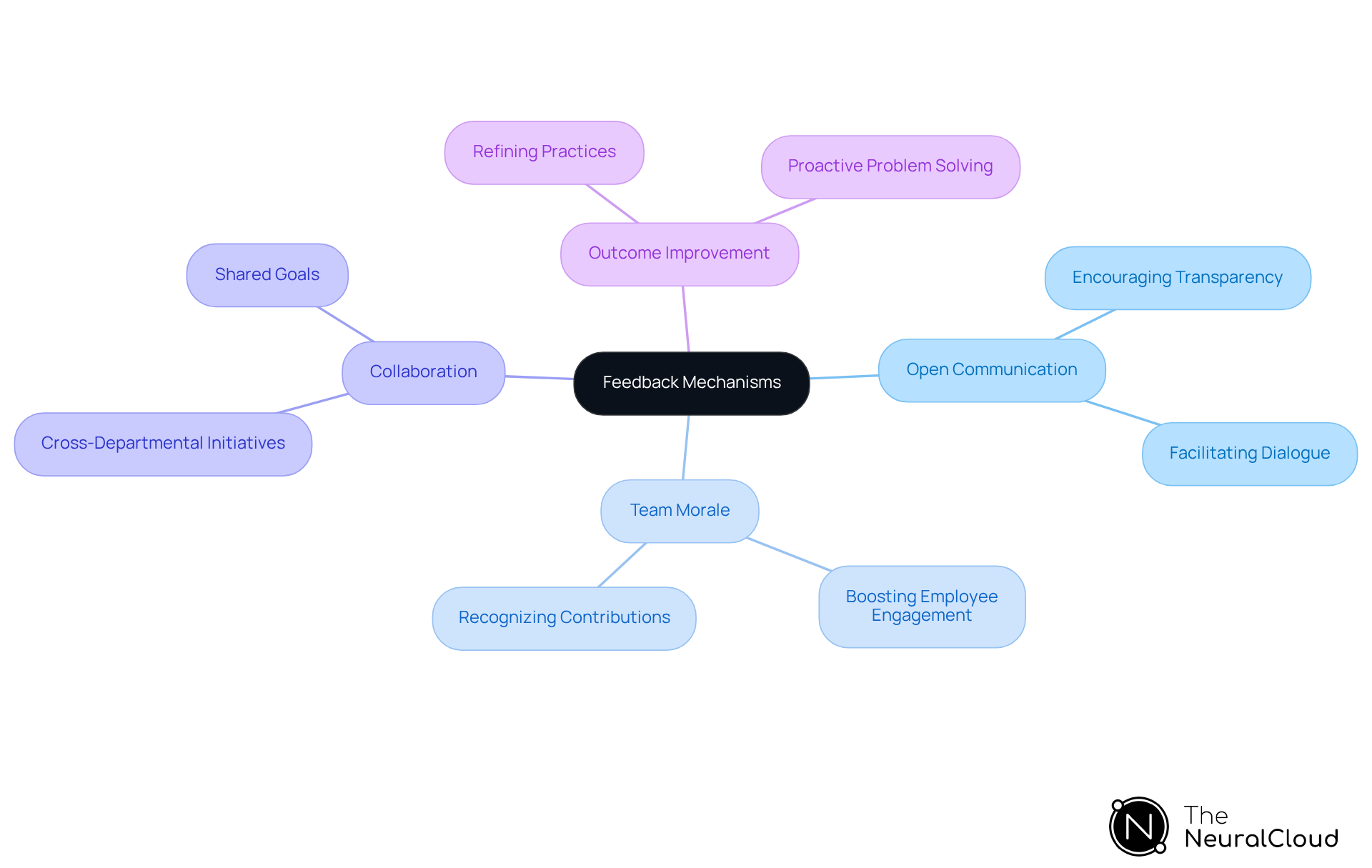
Emotional Intelligence: A Key Component of Effective Healthcare Leadership
Emotional intelligence is essential for professionals in the medical field, allowing them to effectively navigate the complexities of group dynamics and patient interactions. Leaders with high emotional intelligence manage stress well, communicate empathetically, and foster a supportive work environment—critical elements in the emotionally demanding realm of medical services. Research indicates that individuals with strong emotional intelligence enhance group cohesion, leading to improved collaboration and innovation. For instance, medical teams led by emotionally intelligent individuals report significantly higher levels of engagement and productivity, with 90% of top performers exhibiting above-average emotional intelligence.
Furthermore, organizations that prioritize emotional intelligence in leadership development see notable improvements in patient satisfaction. These leaders are better equipped to understand and address the emotional needs of both staff and patients. Notably, companies that focus on emotional intelligence are 22 times more likely to outperform those that do not. By cultivating emotional intelligence, medical organizations can build a more resilient workforce capable of delivering high-quality care, even in challenging situations.
To leverage these insights, medical executives should consider incorporating emotional intelligence training into their professional development programs. This approach ensures that their teams are well-prepared to handle the emotional challenges inherent in their roles.
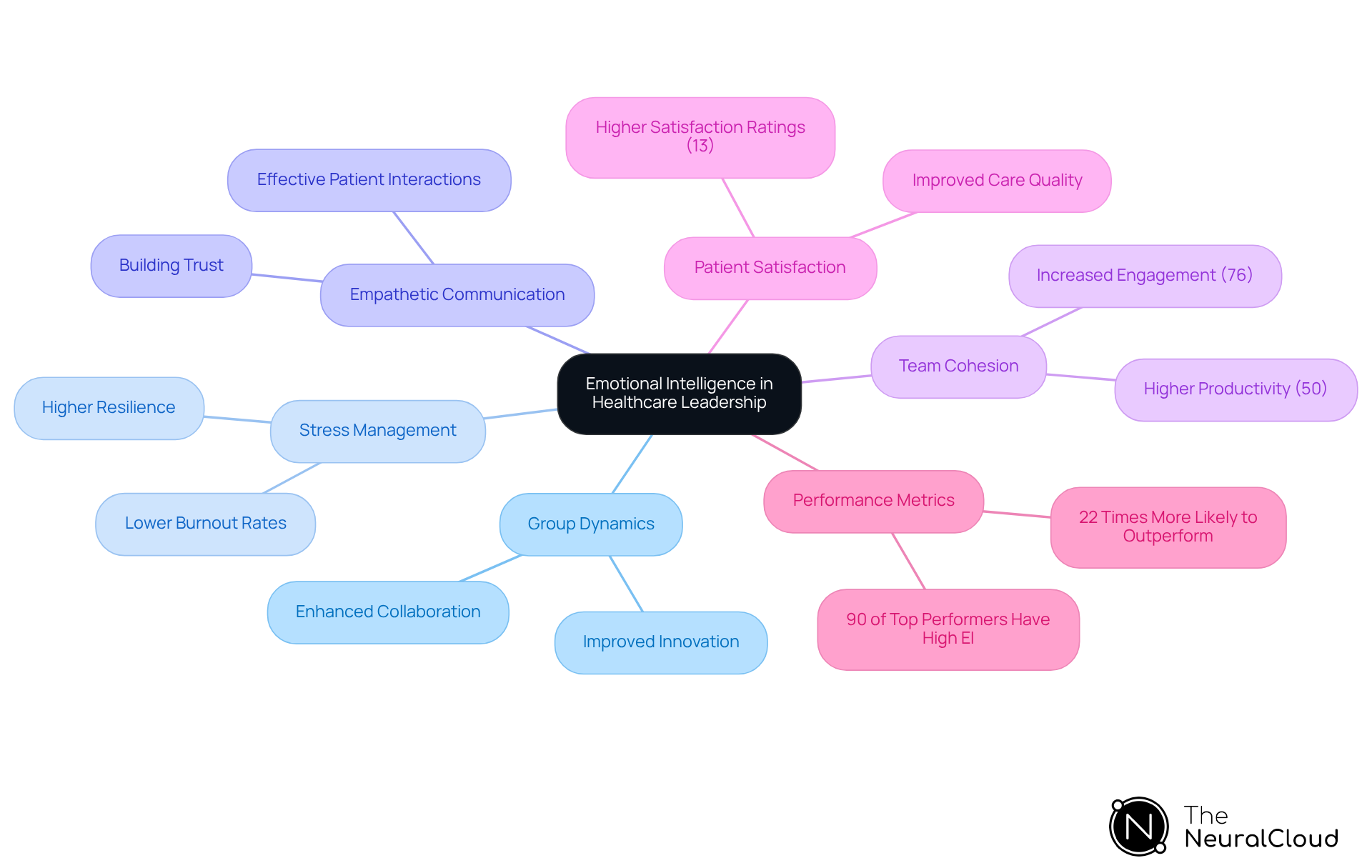
Technology Integration: Streamlining Leadership Practices in Healthcare
Incorporating technology into mi leads practices is essential for enhancing operational efficiency. Leaders must leverage tools such as data analytics, electronic health records, and AI-driven platforms, as mi leads to making informed decisions. One notable example is Neural Cloud Solutions' MaxYield™, which employs gold standard noise filtering and automation. This platform streamlines ECG workflows by highlighting P, QRS, and T waves, significantly improving analysis accuracy and efficiency.
Features of MaxYield™:
- Gold Standard Noise Filtering: Reduces interference in ECG readings.
- Automation: Streamlines the workflow, allowing for quicker analysis.
- Highlighting Key Waves: Focuses on P, QRS, and T waves for precise interpretation.
Healthcare organizations that have adopted AI automation report cost reductions of 30 to 50 percent in manual processing, alleviating administrative burdens significantly. This proactive approach enables mi leads in the medical field to optimize workflows and focus on strategic initiatives that enhance patient care. Moreover, predictive analytics tools are transforming how executives forecast patient volumes and allocate resources, and this mi leads to smarter operational decisions.
By adopting these technologies, including Neural Cloud Solutions' continuous learning model, service providers not only enhance organizational performance but also prepare themselves to effectively tackle future challenges. The integration of such advanced tools ensures that healthcare professionals can focus on delivering high-quality care while navigating the complexities of modern healthcare environments.
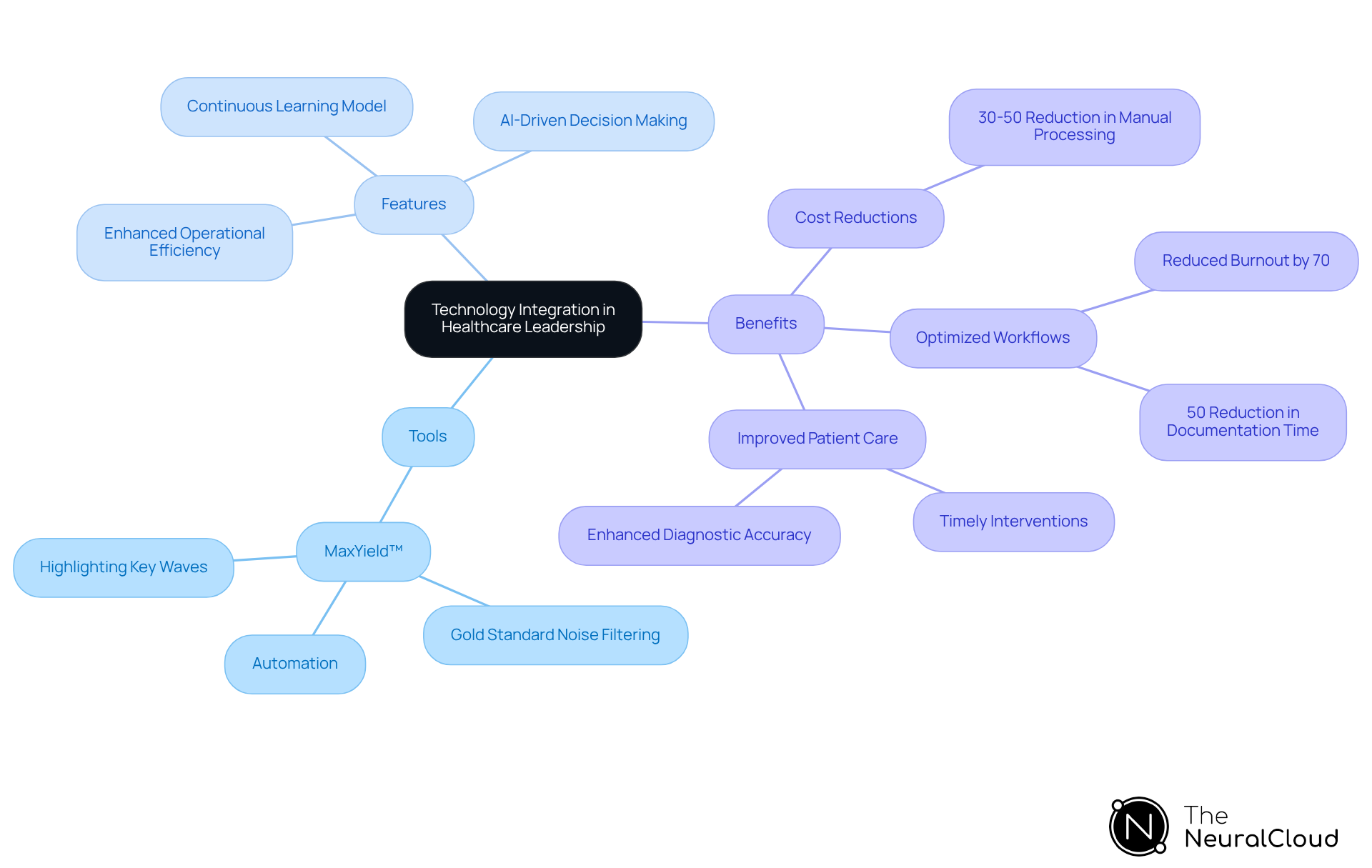
Team Dynamics: Strengthening Collaboration Through Effective Leadership
In healthcare organizations, effective leadership mi leads to shaping group dynamics. Leaders who mi leads in understanding their teams' strengths and weaknesses can foster collaboration and trust. By cultivating a collaborative culture, mi leads can enhance communication and problem-solving skills, which ultimately results in improved patient outcomes. Strategies such as team-building exercises, regular check-ins, and recognizing individual contributions can significantly strengthen team cohesion, which mi leads to enhanced performance.
For example, the case study on "Collaborative Leadership in Healthcare" demonstrates how effective communication and teamwork among administrators and clinicians can boost organizational effectiveness. Additionally, current research underscores the importance of emotional intelligence in leaders, as emotional intelligence leads them to manage conflicts and create a supportive environment. Dr. Melissa Chapman Haynes notes that successful collaboration requires leaders, or mi leads, to navigate the complexities of teamwork with confidence.
Moreover, with the U.S. Bureau of Labor Statistics projecting a 29% increase in employment for medical and health services managers from 2023 to 2033, mi leads in effective leadership are more critical than ever in healthcare. By implementing strategies and frameworks like the upcoming 'Shared Responsibility: A Framework for Effective Collaboration,' healthcare professionals can enhance cooperation within their teams, ultimately improving care delivery and patient safety.
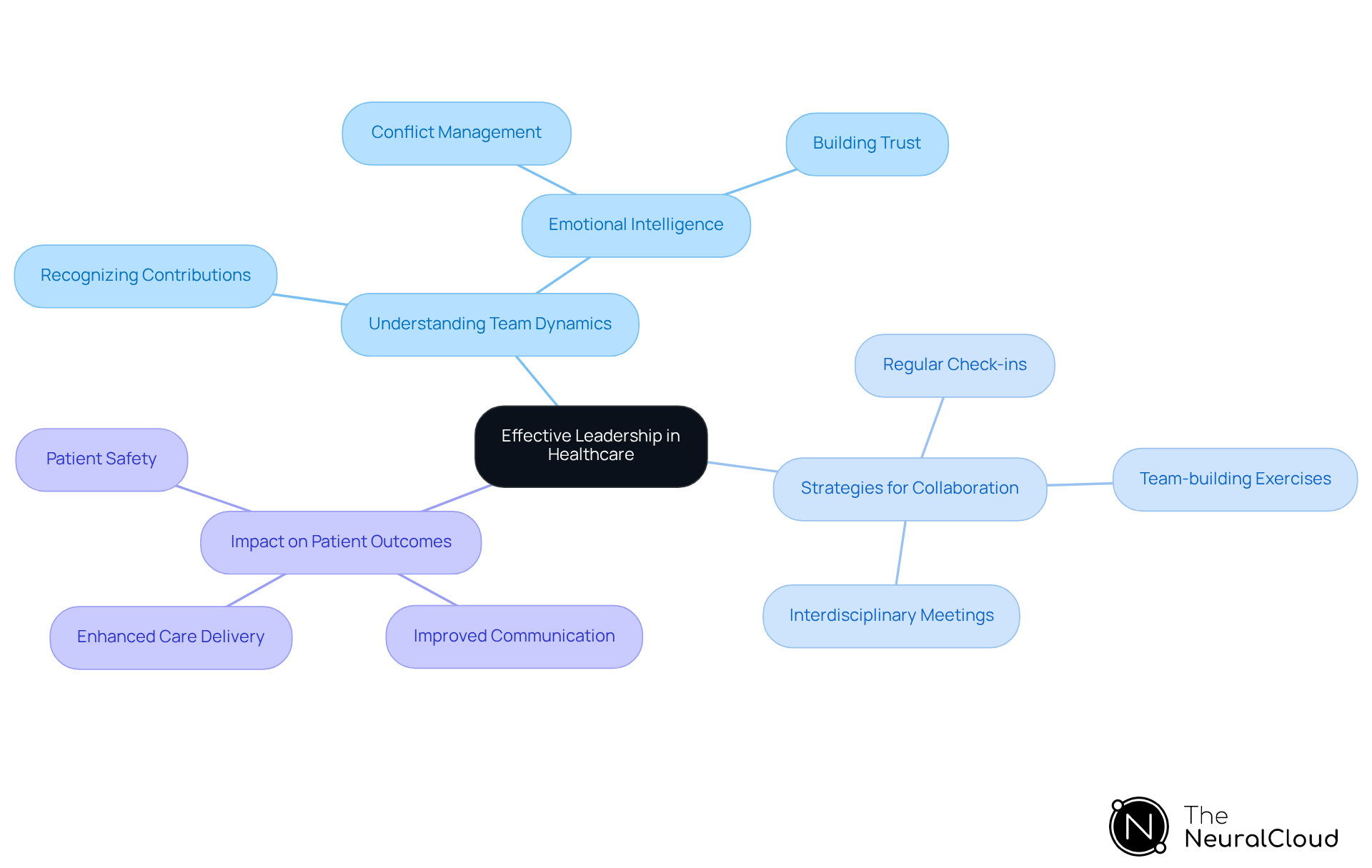
Strategic Vision: Aligning Healthcare Teams with Organizational Goals
A clearly articulated strategic vision is crucial for healthcare executives aiming to align their teams with organizational objectives. Leaders must communicate this vision effectively, ensuring that every team member understands their role in achieving these goals. By fostering a shared sense of purpose, leaders can motivate their teams and drive collaborative efforts toward success. Regularly revisiting and refining the strategic vision helps maintain alignment and adaptability in the rapidly changing healthcare landscape.
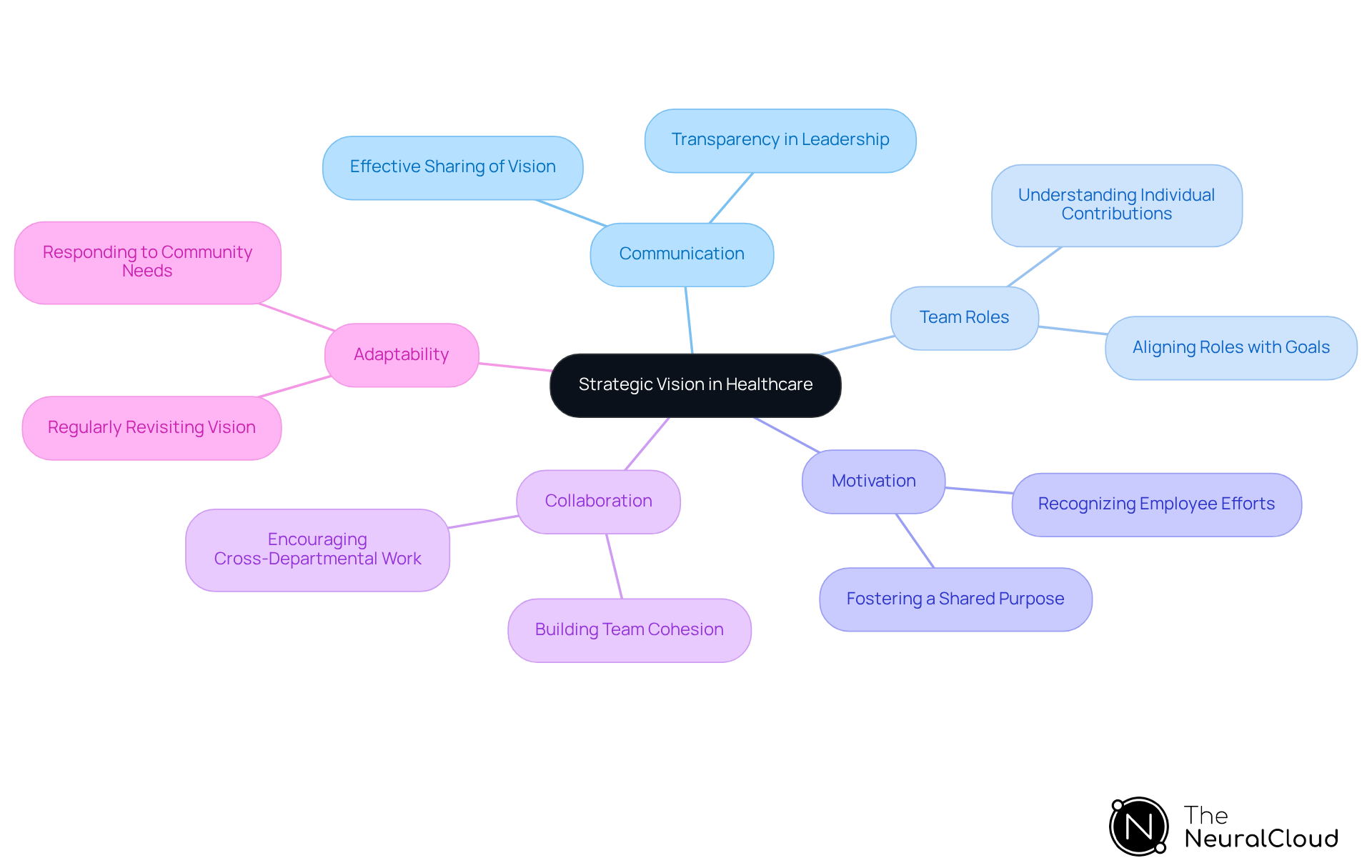
Mentorship: Cultivating Future Leaders in Healthcare
Mentorship initiatives play a crucial role in developing the next generation of medical professionals. By linking experienced practitioners with emerging talent, organizations enable vital knowledge transfer and skill enhancement. This relationship fosters a supportive atmosphere where mentees can learn from real-world experiences and gain insights into the complexities of leadership challenges. Investing in mentorship not only advances individual growth but also strengthens the overall leadership capacity, which may lead to enhanced effectiveness in medical organizations.
Research indicates that about 75% of medical leaders attribute significant portions of their success to mentoring, underscoring its importance in cultivating effective professionals. Moreover, organizations that implement structured mentorship programs report a 72% increase in productivity, showcasing the tangible benefits of these initiatives. For instance, the Diverse Mentorship Program aims to create a varied pipeline of professionals in the field, demonstrating how targeted guidance can enhance career pathways for individuals from underrepresented communities. This ultimately contributes to a more diverse and capable workforce.
Additionally, a remarkable 96% of mentees find mentoring extremely beneficial, reflecting the perceived value of mentorship among participants. As mentees evolve into mentors, they nurture a culture of learning and growth, ensuring the sustainability of leadership excellence in the medical field. This cycle of mentorship not only enriches individual careers but also fortifies the entire medical community.

Resilience: Navigating Challenges in Healthcare Leadership
Resilience stands as a crucial quality for healthcare professionals, empowering them to tackle the myriad challenges present in the industry. Leaders can foster resilience within their teams by implementing several key strategies:
- Promoting a positive work culture
- Encouraging open communication
- Providing robust support during difficult times
For instance, organizations that prioritize employee well-being through mentorship initiatives and peer support groups often see significant improvements in team morale and performance.
Research indicates that strong medical groups are better equipped to manage stress and adapt to change, which ultimately enhances patient care outcomes. Furthermore, resilience training has proven effective in improving group dynamics and reducing burnout, leading to a more engaged workforce. By nurturing a resilient mindset, healthcare leaders not only bolster their own capabilities but also motivate their teams to face adversity with confidence and determination.
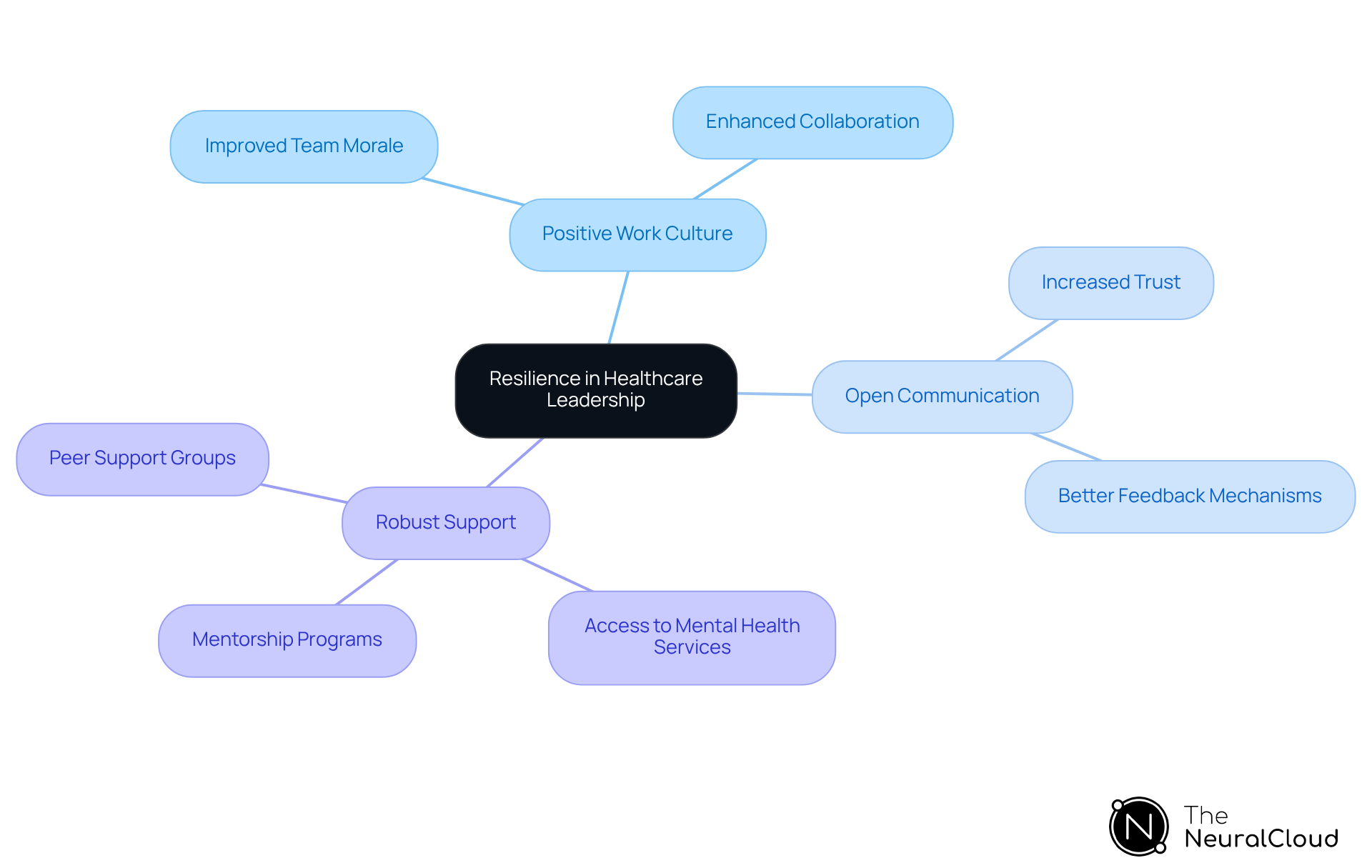
Conclusion
Effective healthcare leadership plays a crucial role in navigating the complexities of modern medical environments. By integrating key insights such as automated ECG analysis, motivational interviewing, tailored leadership training, and the cultivation of emotional intelligence, healthcare leaders can significantly enhance team dynamics, improve patient outcomes, and foster a culture of continuous improvement. These strategies empower leaders to adapt to challenges while ensuring that both staff and patients receive the highest quality of care.
The article highlights several essential components for successful leadership in healthcare. The use of Neural Cloud Solutions' MaxYield™ technology exemplifies how automation can streamline processes. This platform enhances ECG analysis by providing accurate, real-time data, which leads to improved decision-making. Additionally, motivational interviewing techniques enhance communication and collaboration among team members. Furthermore, structured mentorship programs and a focus on emotional intelligence are critical in developing future leaders, ultimately leading to more resilient healthcare organizations.
In conclusion, integrating these strategies not only strengthens healthcare leadership but also prepares organizations to face future challenges effectively. As the landscape of healthcare continues to evolve, prioritizing these insights will be vital for leaders aiming to create a supportive, efficient, and patient-centered environment. Embracing these approaches can lead to transformative changes, ensuring that healthcare professionals are equipped to deliver exceptional care in an ever-changing industry.
Frequently Asked Questions
What is the MaxYield™ platform and what does it do?
The MaxYield™ platform, developed by Neural Cloud Solutions, automates ECG analysis by using advanced methodologies and noise filtering to interpret cardiac signals, processing over 200,000 heartbeats in under five minutes.
How does MaxYield™ improve the accuracy of ECG analysis?
MaxYield™ employs sophisticated AI algorithms and a Continuous Learning Model, achieving a positive predictive value and sensitivity of 0.837, which surpasses average cardiologist assessments and accurately identifies electrocardiographic abnormalities.
What are the benefits of using MaxYield™ in clinical settings?
The platform enhances diagnostic accuracy, streamlines workflows, and improves overall patient care quality, as evidenced by case studies demonstrating significantly higher sensitivity and accuracy compared to traditional ECG methods.
How is AI perceived in the context of ECG analysis?
Healthcare professionals increasingly recognize the value of AI in ECG analysis for its ability to detect arrhythmias and other abnormalities, thereby alleviating clinician workload and improving patient outcomes.
What is motivational interviewing (MI) and how does it benefit healthcare leadership?
Motivational interviewing (MI) is a communication approach that enhances engagement and motivation among medical teams, fostering open dialogue, collaborative decision-making, and improved group dynamics.
What are the outcomes of implementing MI techniques in medical settings?
Leaders trained in MI techniques report increased confidence in communication, greater job satisfaction, and enhanced group cohesion, which ultimately leads to improved patient care outcomes.
Are there any considerations to keep in mind when using MI?
MI may not be suitable for everyone, particularly those dealing with trauma or depression, so careful consideration is necessary before its application.
Why is follow-up important after MI sessions?
Follow-up is essential for monitoring changes and evaluating the effectiveness of MI, ensuring that the benefits are fully realized and contributing to sustained improvements in team dynamics and patient outcomes.
What are the key components of effective leadership training programs in healthcare?
Effective leadership training programs address challenges in healthcare through modules on strategic decision-making, crisis management, and technology integration, using real-world scenarios to develop essential skills.
How do tailored leadership training programs impact medical professionals?
Tailored solutions enhance leaders' knowledge and empower them to implement strategies that align with organizational goals, addressing patient needs and reducing burnout rates among medical professionals.
